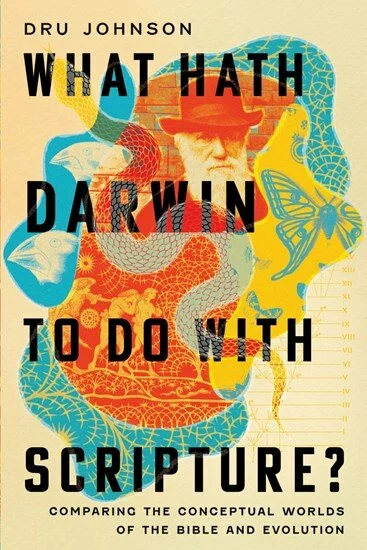

What Hath Darwin to Do with Scripture?:Comparing Conceptual Worlds of the Bible and Evolution
Dru Johnson
InterVarsity Press
Believe it or not, the book of Genesis might have been the most Darwinian text in the ancient world. And throughout the opening books of Scripture, we find ideas that would also become prominent insights of the biologist Charles Darwin interlaced with the Bible’s one-of-a-kind origin story. Key plot markers come to the surface again and again, driving the history of Israel and the Jesus movement forward to its cosmic completion.
Biblical scholar Dru Johnson calls us beyond typical creation-versus-evolution debates to explore the conceptual worlds underlying both Scripture and evolutionary science. He points toward remarkable continuities and discontinuities between the Bible’s central concerns and those of Darwin and modern science—ideas so fundamental that they can easily escape our notice.
The Hebrew creation accounts, Johnson argues, weave together three key themes on the origins and development of humans and animals, themes that are also essentially Darwinian:
- the connection among scarcity, cooperation, and violence
- the fitness of creatures to their environments
- the genealogical aims of sexual reproduction
Can the ideas of Scripture and evolutionary science be mutually illuminating? When we enter deeply into the metaphysical imagination of the biblical authors, we discover surprising ways in which the two accounts converge—and conflict.
